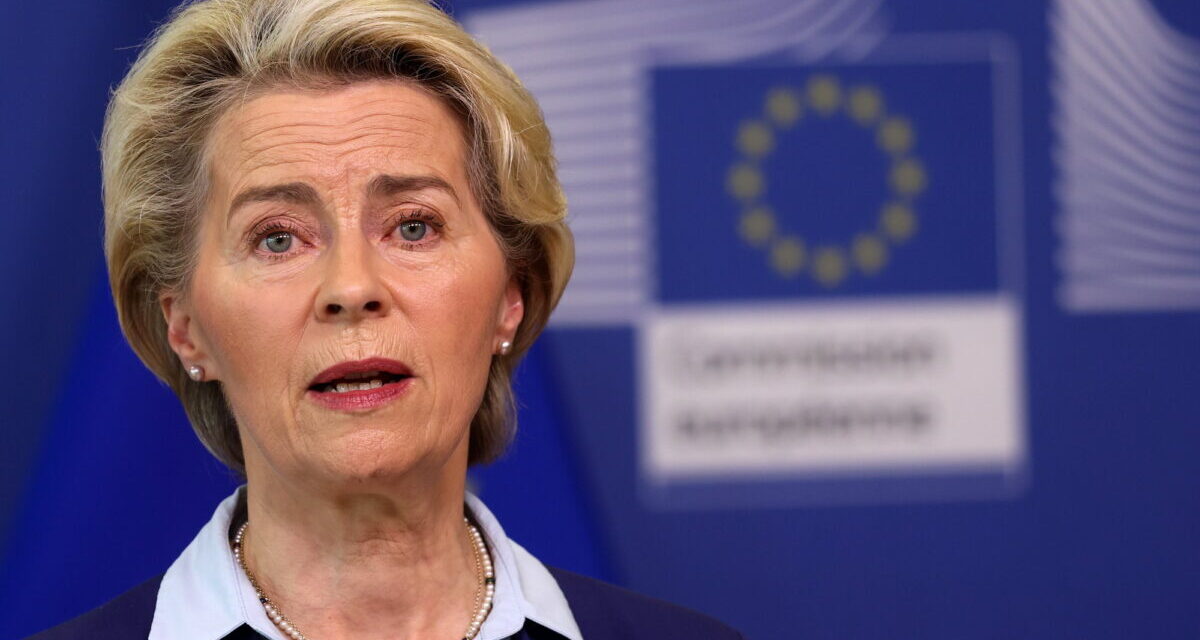What do we call it when the company from which the President of the European Commission orders vaccines via text message sues Hungary for not waiting its turn, and the same Commission happens to side with the company? Obligation infringement? Corruption? No, rule of law!
Over the past few years, the question has arisen countless times as to whether the EU institutions themselves have any accountability or obligation towards the individual member states, while Brussels conducts body cavity inspections on a daily basis regarding the rule of law of the member states.
The answer is usually that there should be, but there isn't.
Let's look, for example, at the still current example, the war in Ukraine. Considering that the European Union considers itself a frontline between "Western democratic values" and "barbaric Russian aggression", perhaps it would have been more worthwhile to build an economically and militarily stronger Europe instead of self-defeating sanctions. At least if the goal was to keep Russia in check.
Instead, they voted on sanctions with the member states, which did not benefit anyone, but everyone suffers together.
Obligation infringement? No?
Let's go on!
A closer example: the coronavirus epidemic pushed the whole world into recession. The member states jumped on the resources of the upcoming new EU budget cycle like hungry wolves.
Only two member states that found themselves on the frontline of the war in Ukraine, which broke out during the march, did not receive the money due to them: Hungary and Poland.
Then, during the energy crisis, the left-wing opposition temporarily stationed in our country screams at the top of their lungs that the Hungarian economy is in trouble.
Yes, comrades, that's why you shouldn't lobby Brussels to withhold trillions.
Oh, I didn't even add that part of the money is a loan that we also have to repay, but we just didn't get a part of it. Obligation infringement? Simple piety?
In principle, the European Union is a cooperation based on equality between the partner countries, where 10 million Hungary has just as much say as eight times the size of Germany, and the interests of the member states are jointly represented against external attacks and influences by a body called the European Commission.
Unless this extends beyond the power of the European Commission, it is trying to build an empire, all with the money of transnational corporations, along their interests. Then it becomes unfit to perform its basic function.
This is exactly what is happening now.
It happened that, according to Politico, the European Commission also spoke out in connection with the legal dispute between the Hungarian government and Pfizer. The Commission denies the Orbán government's claims that it ordered an unnecessarily large amount of vaccine and later forced it on the member states.
According to Pfizer, the Hungarian government currently owes the value of three million vaccines, i.e. 60 million euros. So far the news.
What came next, however, is both outrageous and disheartening: Commission spokesman Stefan De Keersmaecker announced with a stern face that the European Commission did not directly purchase a vaccine against Covid-19, but concluded framework contracts with pharmaceutical companies as a result of consultations with the member states.
And then what about SMS?
Ursula von der Leyen chatted with the head of Pfizer in the form of text messages and phone calls for a month before the European Union ordered 1.8 billion doses of the vaccine from the company. However, the public cannot find out anything about the content of the message exchanges, because the Brussels bureaucracy smeared the cases until they finally abdicated their own responsibility. Of course, this does not influence them to preach to us about the rule of law.
Von der Leyen did business with Pfizer via SMS. Hungary did not want to participate in this!
1.8 billion vaccines for the 448 million EU. That is, 4 vaccines per person, only from Pfizer. Fortunately, this is not an excessive amount according to the Commission. How would it be if the husband of the head of the board, Ursula von der Leyen, works for the company in question.
It seems that in Brussels they really believe that they can do anything to the smaller member states.
If this is the case, the question arises as to whether there is a breach of obligation if a Commission puts the interests of a multi-company before a Member State. And the answer would be yes, in an ideal world. In its place, Hungary is once again in the spotlight.
Cover image: Ursula von der Leyen, President of the European Commission
Source: MTI/EPA/Olivier Hoslet













